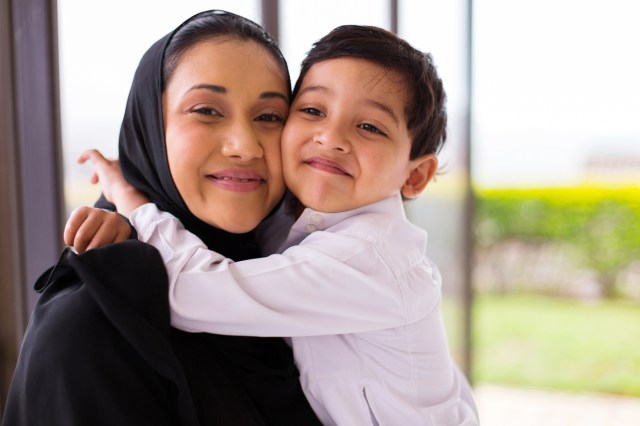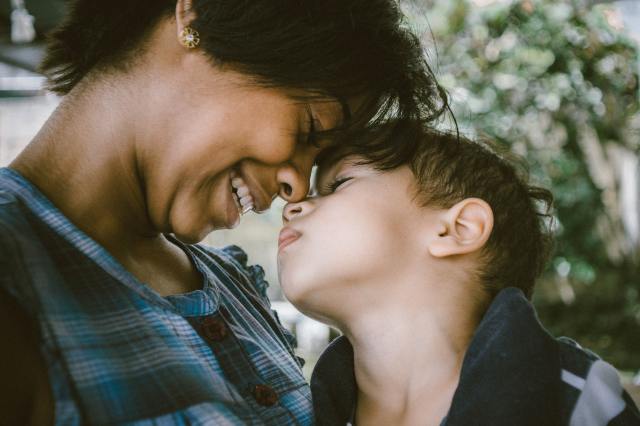Grandparents Day falls on Sept. 12 this year and it’s the perfect time to celebrate the people who put the grand in grandparent. From mail-order hugs to Grandparents Day coloring pages, we’ve found DIY gifts for grandparents that are thoughtful, creative, and come together in no time. Keep scrolling for all the awesome possibilities.
Grandkid Date of the Month Club
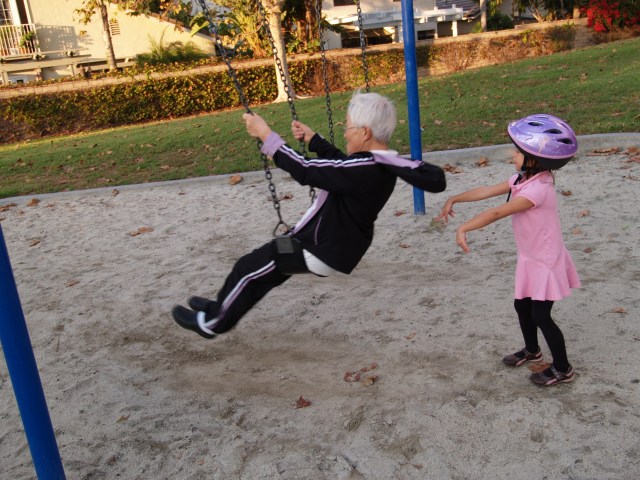
When it comes to gift ideas for grandparents, you can't go wrong with quality time with the grandkids! Inner Child Fun came up with the brilliant idea for a Grandkid Date of the Month Club; just brainstorm a dozen fun activities and assign each one to an appropriate month. Voila! Learn more here.
"I Love You" Pillowcase

Give the grandparents extra sweet dreams with this cute DIY pillowcase idea from Mama. Papa. Bubba. All you need is fabric markers, a couple of mini artists, and the pillowcase, of course. For the full (easy) how-to, click here.
Paint Your Life

Paint your life takes your most-loved photos and creates a work of art! Professional artists work to capture your favorite people in whatever format you choose—oil, charcoal, watercolor, and more.
No-sew rice heating pad

Pamper grandparents with this homemade heating pad from Unsophisticook! It's stuffed with a pantry staple (rice!), can be made in 5 minutes, and uses upcycled baby legwarmers. Get the full instructions here.
Grandparents Day Coloring Pages

Kid-made art is always a hit with grandparents, which is why you should click on over to Skip to My Lou. With three types of Grandparents Day coloring pages (each one cuter than the last), your little artists can go to town! Get the printables here.
Send a Hug
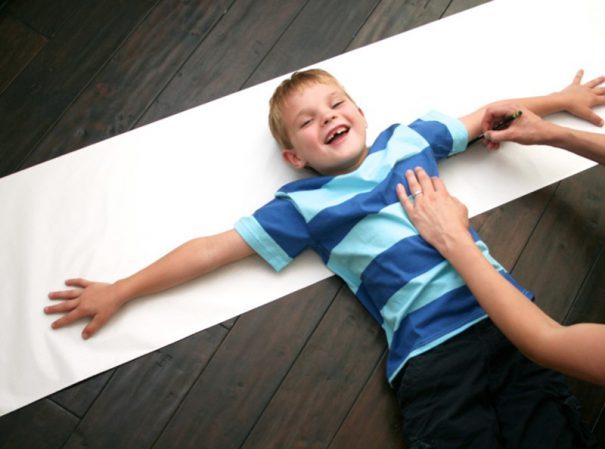
Send a life-sized hug to Grandma and Grandpa! All you need to do is trace your kiddo's outstretched arms to create a giant paper “hug” that you can roll up and mail. Paging Supermom shared all the fun details of this project with Raising Arizona Kids. Click here for the how-to!
Butterfly Footprint Art
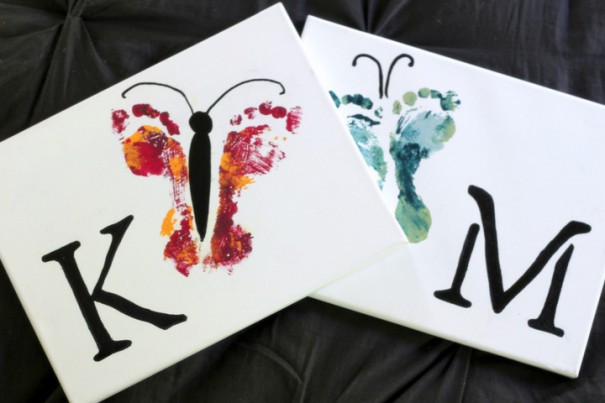
Put a smile on Grandma and Grandpa's faces with a cute footprint keepsake! With acrylic paint and a canvas, and a little guidance from Mommypotamus, you’ll have a professional-looking, adorable gift in no time. To get the instructions, click here.
Interview with a Grandparent
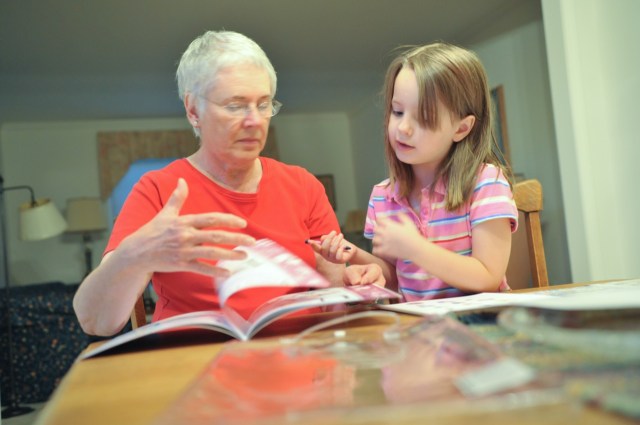
Get your kids to interview their grandparents in order to learn more about the family tree: We’ve got 10 great questions right here. For extra memories, bust out your iPhone and hit record so you can keep the grandparent-grandkid interaction forever. Do Grandma and Grandpa live far away? We’d bet they’d love getting mail. Just send the interview questions, along with a kid-crafted card.
Colorful Coasters
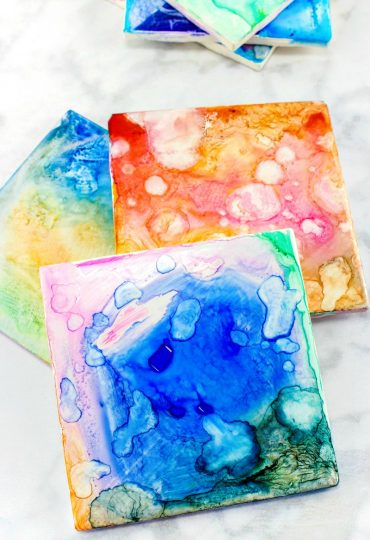
Let your little artists get creative with this simple project from Natural Beach Living. It’s super easy to pull off with supplies you probably already have, and the resulting coasters are functional and special! To get all the details on how they’re made, click here.
Flowery Card for Grandma
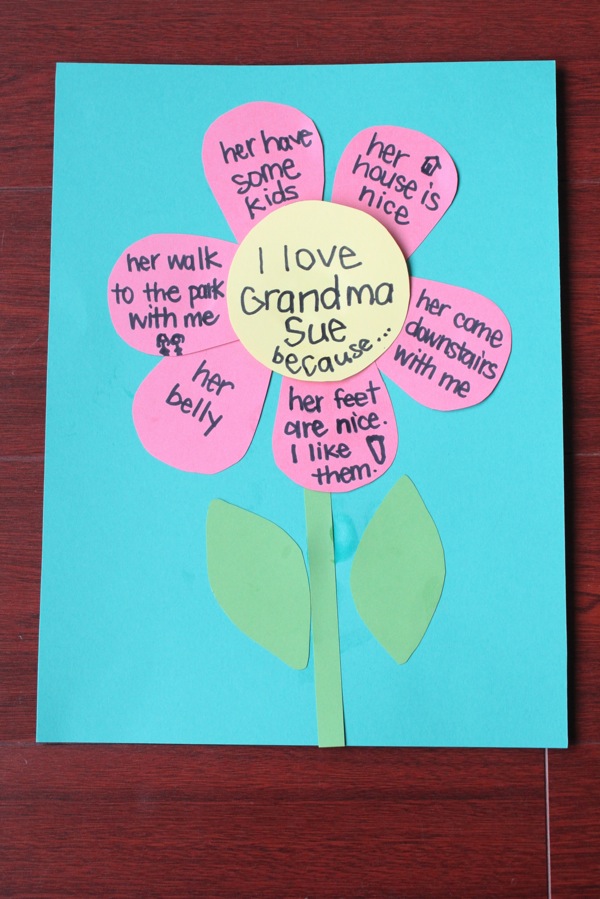
This gift idea from Mama. Papa. Bubba. is sure to melt any grandparent’s heart. Each flower petal describes one of your mini-me’s favorite things about their grandma or grandpa. To get the details on how it’s made, click here.
Popsicle Picture Frame for Pop
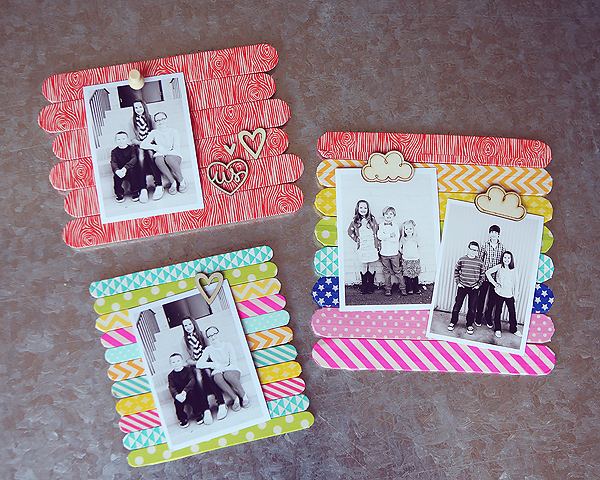
Skip the store-bought picture frame and grab jumbo Popsicle sticks instead! Eighteen 25 has the 411 on assembling and decorating these fun frames. Just add a fave family photo for the perfect grandparent gift! Click here to get all the details.
Grandkid Refrigerator Magnets

How adorable are these refrigerator magnets from I Can Teach My Child? If you don't have enough kids to spell out “GRANDMA,” get creative and spell "LOVE" or “PAPA.” For more on this fun project, just click here.
Mini Photo Book
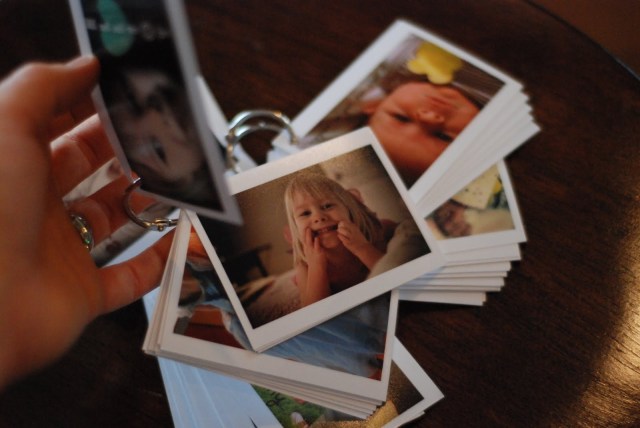
Gather up a bunch of your favorite photos to make this easy DIY from Walla Walla Valley Girl. Once the photos are printed (you can do it on the cheap at your local drugstore), just punch holes and attach them to a metal ring. Click here for the full instructions.
10 Things We Love About Grandpa
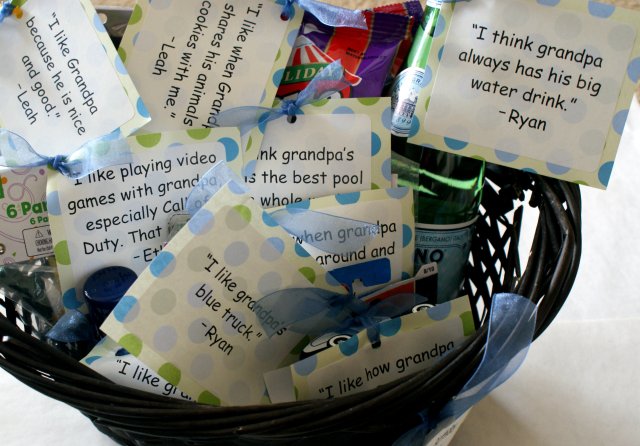
Here's a genius gift idea from Somewhat Simple: Ask your kids to name three or four things they love about their grandpa. Then type their honest, meaningful, and hilarious answers up word-for-word and attach a small gift that represents each answer. Click here to get the details.
DIY Photo Keychains
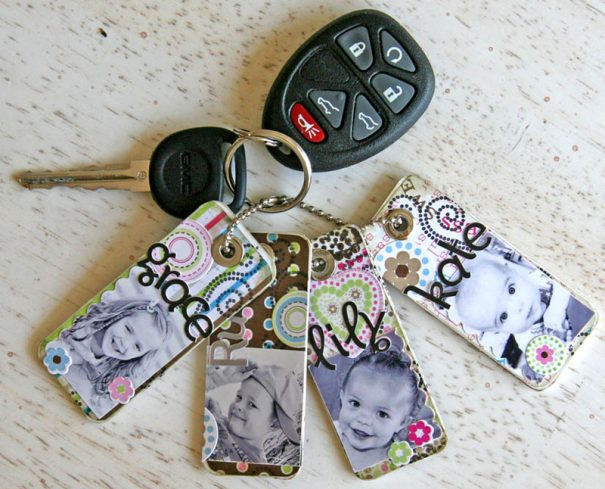
Grandma and Grandpa can keep your little ones close all the time with this cute idea from My Crazy Life as a Farmer’s Wife. After you print out photos, have your little artists help decorate the keychains before gifting them. To see the instructions, click here.
Grandkid Photo Luminaries
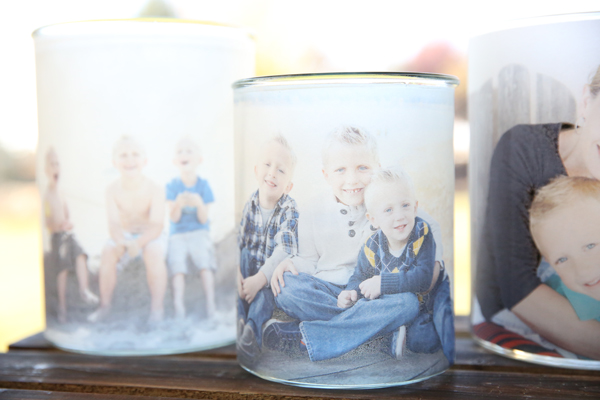
Why frame it, when you can illuminate it? Turn your favorite family snapshots into these glowing photo luminaries from Our Best Bites. Bonus: These holders are upcycled from items like mason jars, flower vases, and hurricanes! Click here for the full tutorial.
— Abigail Matsumoto & Aimee Della Bitta
Feature photo: iStock
RELATED STORIES:
12 Games to Play with Grandparents
Things to Do When Grandparents Visit
How Much Time Should Kids Spend with Grandparents?













